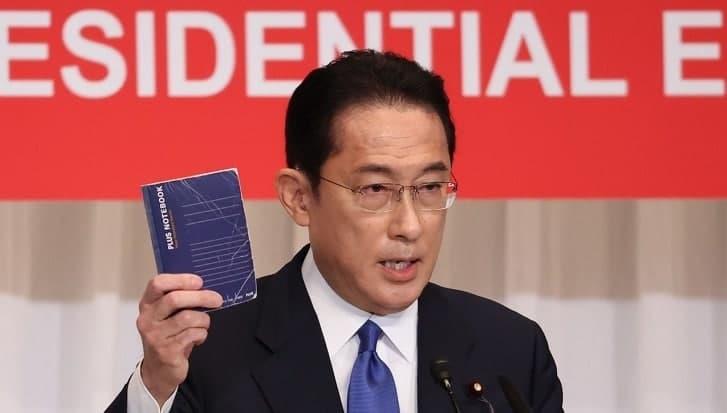TOKYO, Sep 29 (Reuters) - Japan's ruling party elected former foreign minister Fumio Kishida its new leader on Wednesday (Sep 29), setting him on course to become the next prime minister of the world's third-largest economy.
The soft-spoken centrist defeated popular vaccine chief Taro Kono in an unusually close race to succeed Prime Minister Yoshihide Suga, who decided to step down after just a year in office.
Kono, 58, a US-educated former defence and foreign minister is seen as a maverick but driven by public popularity, while Kishida, 64, is saddled with a bland image but has a stronger support base from party members in parliament.
Public broadcaster NHK had projected that Kono would get 39 out of 47 votes allocated to local party chapters in the runoff.
His rival Kishida was projected to get the remaining eight votes. A total of 429 votes are being cast in the run-off, of which 382 lawmakers and 47 local party chapters are allocated a ballot each.
The other two candidates who ran for the top post were former internal affairs minister Sanae Takaichi, 60, an ultra-conservative; and Seiko Noda, 61, from the party's dwindling liberal wing.
With his support in tatters ahead of the election, Prime Minister Suga surprisingly announced he would step down after only a year as the Liberal Democratic Party (LDP) leader at Wednesday's vote.
With masks on, the LDP's parliamentary members, including Suga and former prime minister Shinzo Abe, gathered in the ballroom of a Tokyo hotel to cast their votes from 1pm (12pm, Singapore time). Their ballot box was closed about 30 minutes after they voted in lines.
Last year, LDP factions rallied around Suga after Abe quit following his nearly eight-year tenure, citing ill-health. But Suga's ratings tanked over his handling of the pandemic, prompting him to announce his departure ahead of a general election that must be held by Nov 28.
This time, the race to become the country's next leader is too close to call. Most factions are not unified and votes from rank-and-file members are counted, as opposed to last year.
Kono has the highest numbers in public polls, but Kishida led among lawmakers, predictions showed, as senior party bosses see him more stable.
Grassroot LDP members and rookie lawmakers have emerged as a force in the brief campaign preceding the votes, seen more likely to be swayed by popularity ratings.
Kono and Kishida have pointed to the failure of Abe's signature "Abenomics" mix of expansionary fiscal and monetary policies and growth strategy to benefit households but offered few specifics as to how to fix the flaw.
The next prime minister will continue with expansionary economic policy "for at least another year", as the pandemic has yet to be contained, said Ryutaro Kono, chief Japan economist at BNP Paribas.





